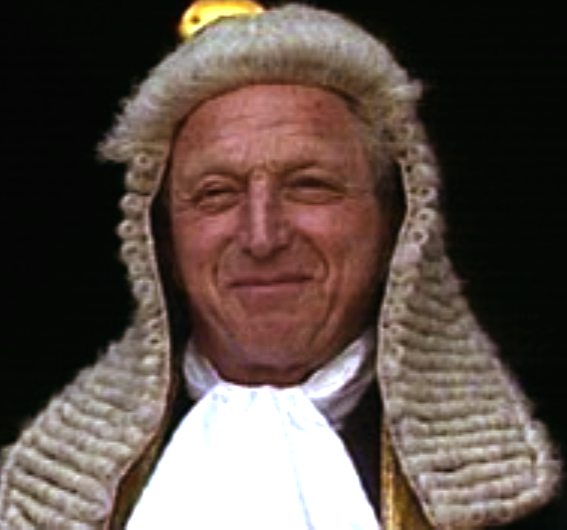LORD WOOLF - ACCESS TO JUSTICE ACT
HOME CUISINE ENVIRONMENT INSURANCE HORSES LEGENDS LAW NEWS PRODUCE RIGHTS SITE INDEX TRANSPORT WHISTLEBLOWING
ON RECOVERABLE COSTS
The costs recoverable by parties in respect of periods when they are or were litigants in person are governed by the Litigants in Person (Costs and Expenses) Act 1975 and by CPR 48.6.
I'm all right Jack, and don't I look smug about it?
The costs of litigants in person can be divided
into four categories:
1. Out of pocket expenses (such as court fees, fares travelling to court,
witness fees, etc) if they relate to work or disbursements which would
have been done or made by a solicitor had a solicitor acted for the
litigant in person.
2. Payments made to obtain expert assistance in connection with assessing
the claim for costs. For this purpose a person is an expert if he is a
barrister, solicitor, Fellow of the Institute of Legal Executives, Fellow
of the Association of Law Costs Draftsmen, or a law costs draftsman who is
a member of the Academy of Experts or the Expert Witness Institute.
3. Costs for work done by the litigant in person which caused him or her
pecuniary loss (for example, a litigant in person who is employed losing a
dayís pay through attending a court hearing or through going on a long
journey to interview an essential witness).
4. Costs for work done by a litigant in person which did not cause him or
her any pecuniary loss (eg, the examples just given if the work was done
during leisure time).
PROCEDURE ON DETAILED ASSESSMENT
Generally speaking the procedure by which a
litigant in person seeks to obtain costs from another party is briefly,
service of a bill plus notice of commencement and certain other documents,
obtaining a default costs certificate or, if points of dispute are served,
serving a reply and/or filing a request for a detailed assessment hearing.
Where a litigant in person wishes to prove that he has suffered financial
loss he should produce to the court any written evidence he relies on to
support that claim and must serve a copy of that evidence on the paying
party at the same time as serving the notice of commencement.

CALCULATION OF DISBURSEMENTS
The litigant in person will be allowed all his
reasonable disbursements in full if the costs officer or Costs Judge
decides all of the following questions in his or her favour:
1. Were these disbursements actually incurred?
2. If so, at the time they were incurred, did it then appear necessary or
at least reasonable to incur them?
3. Are the sums claimed for each disbursement reasonable in amount?
If, in respect of any disbursement the answers to questions (1) or (2) is
no, the amount claimed for that disbursement will be wholly disallowed.
If, in respect of any disbursement, the answers to questions (1) and (2)
are yes but the answer to question (3) is no, the costs officer or Costs
Judge may allow a reduced amount for that disbursement.
Calculation of charges for time spent
The rules as to charges for time spent are more
complicated. In order to determine them, the costs officer or Costs Judge
must decide four questions:
1. What items of work were done and what time was actually spent on those
items?
2. In respect of each item, how long was it reasonable for the litigant in
person to spend? The time allowed may be less than the time actually spent
by the litigant in person and more than the time that would have been
spent by a solicitor, had a solicitor been employed to undertake that
item.
3. What hourly rate or other rate is it reasonable to apply in respect of
time reasonably spent by the litigant in person?
4. If all the items of work for which costs are recoverable had been
undertaken by a solicitor, what would a solicitorís reasonable charges
have been for doing such work?
There is no fixed rate at which pecuniary loss will be quantified. For
example, a bank manager may be allowed more than a bank clerk.
There is a fixed maximum rate at which costs for work done in leisure time
is recoverable. The current maximum figure is £9.25 per hour reasonably
spent.
There is an overall limit on charges for time spent which can never be
exceeded. The cost officer or Costs Judge cannot allow more than two
thirds of the sum determined in answer to question (4) above.
ACCESS TO JUSTICE - LORD WOOLF
Chapter 17 - Litigants in Person
-
At every level of the civil justice system litigants are bringing cases without any formal legal representation. A number do so from choice, particularly within the small claims scheme. Many more are forced to do so because they cannot afford the high and often disproportionate costs of legal representation and are not eligible for legal aid. The same reason leads to many more being effectively barred from access to justice as they either do not know of their rights to make or defend a claim or do not know how to do so. Notwithstanding their difficulties throughout the justice system, however, their numbers are increasing. The precise extent of the increase is unknown. It should, from now on, be monitored in cases where a defence has been served.
-
Only too often the litigant in person is regarded as a problem for judges and for the court system rather than the person for whom the system of civil justice exists. The true problem is the court system and its procedures which are still too often inaccessible and incomprehensible to ordinary people.
-
I believe it is essential to the success of my proposals that the courts themselves should in future take a more pro-active role in relation to unrepresented litigants, both in giving information about sources of professional advice and other outside help, and in themselves providing direct assistance. Both court staff and judges must recognize the needs of litigants in person and, if necessary, adjust their approach so that there is no suggestion that they are being treated as an exception or even a nuisance.
-
At the same time there is a need to improve the advice and assistance available and to ensure that litigants have early contact with whatever source of advice is available. Although the judge can preserve equality of ........
